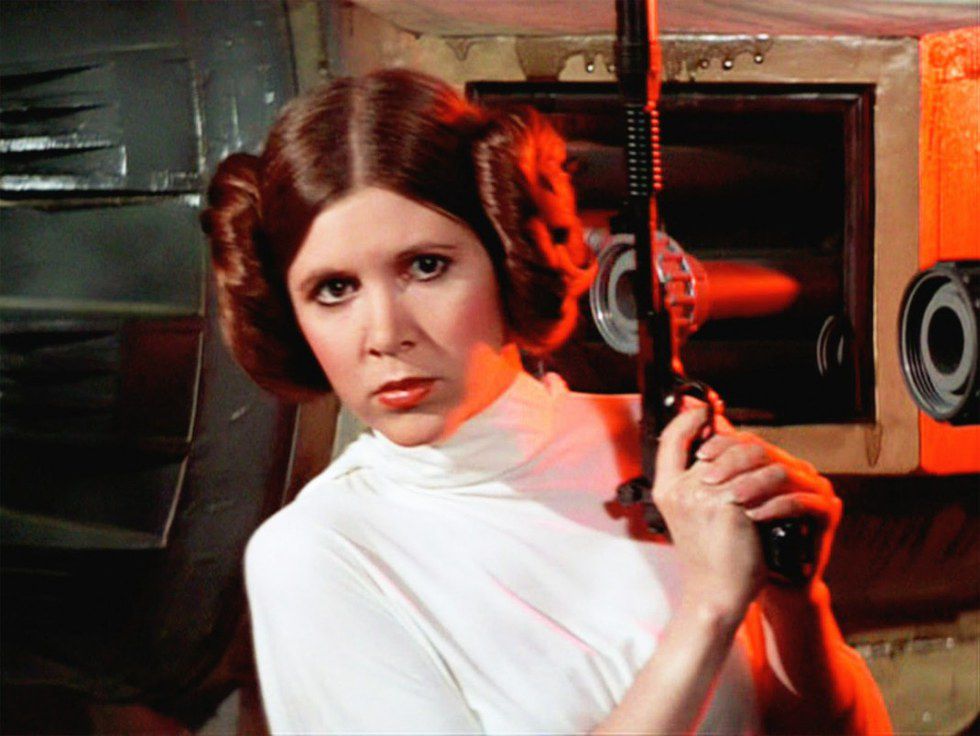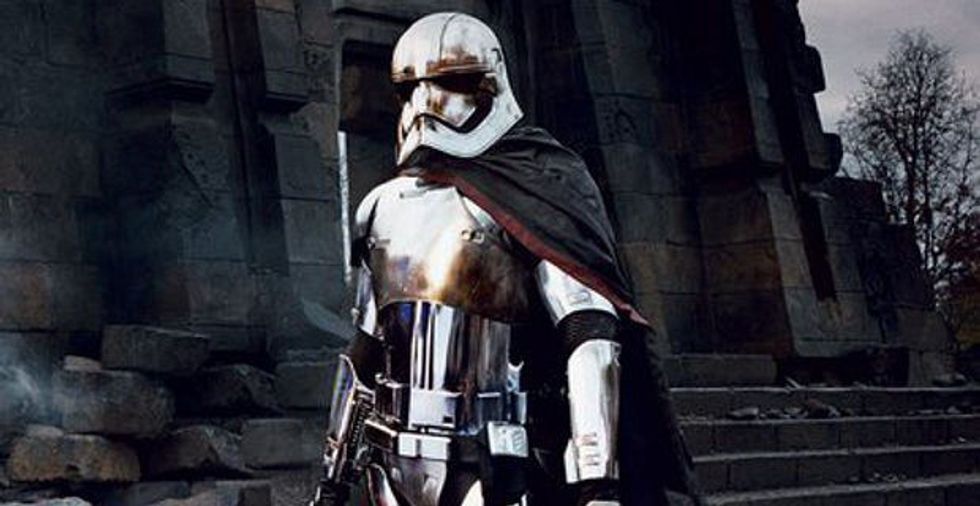Cue the music and the scrolling title screen: the Star Wars franchise is officially back. The most recent movie in the series, "Episode VII: The Force Awakens," was eagerly devoured by devoted fans ever since it was released on Dec. 18. As of Jan. 1, 2016, the box office reports that "The Force Awakens" has demolished a number of records, replacing the second highest-grossing film in America, "Titanic," with over $686.4 million pulled in. "Avatar" is still sitting comfortably at the number-one position, but "Star Wars" could potentially demote "Avatar" in due time. "The Force Awakens" also holds the position of the number one movie in America in 2015, surpassing the successful "Jurassic World" release of the summer. As of right now, the movie is the fourth movie of 2015 and the eighth movie of all time globally as well. The movie also was revolutionary in its marketing campaign. Characters from the recent movie, as well as from previous episodes, were seen on oranges in supermarkets, mascaras in drugstores, and even through special-edition Ugg boots.
After watching all seven episodes, I have determined that the most recent movie has definitely set a number of things straight within the franchise. Not only that, "The Force Awakens" has revolutionized Hollywood.
And this has all been accomplished with the franchise’s depiction of female characters.
Feminism is alive and well in "The Force Awakens," which mends some old wounds for some. Some "Star Wars" fanatics argue that in a number of the earlier episodes, females of all species were misrepresented in one way or another. Princess Padme and Leia, both powerful women in the franchise, were at points completely reduced to stereotypical “female” weaknesses. Padme, for example, was immensely instrumental in the political realm of "Episodes I, II, and III." However, some argue that her relationship with Anakin Skywalker completely overshadowed her influence and reduced her to a dewy-eyed teenager in love. In addition, her elaborate, beautiful costumes were seen as distracting and demeaning to some viewers.
Personally, I disagree with the backlash around Padme’s character. She was an influential female leader who remained true to her people and did work towards what was right for her citizens. Could she have maybe lucked out with a better suitor? Perhaps. Anakin was not really all that terrible a person until he turned over to the dark side. His shift in his alliance was due to his fear of losing his wife in childbirth after he saw it happen in a dream. Padme’s devotion to her husband is not demeaning; in fact, it is admirable. A woman who remains loyal and devoted to her partner is not necessarily a weak woman. She was willing to risk everything for someone whom she cared about very deeply. And she did not “die of a broken heart” either, it was obviously because Anakin choked her in one of the final scenes of "Revenge of the Sith." I believe her decision to stop fighting for life after her children were delivered was actually brilliant. If she were to remain alive, the Empire would’ve searched for her children immediately. By dying, she actually protected her children. Plus, her costumes were incredibly symbolic. The exotic clothes and hairstyles did not make her merely an ornamental object, but instead showcased how a woman can be powerful and influential, while also embracing her feminine image. Padme did not have to abandon what makes her a woman in order to be an influential figure in the franchise.
Princess Leia was also a successful feminist figure. She always spoke her mind, no matter how much trouble she could’ve gotten into for her opinions. Even to intimidating characters like Darth Vader, she remained defiant. She was a member of the Senate, a spy, and a diplomat, all positions that carry a significant amount of power.
The one frustrating thing I find with Leia’s character is her constant need of rescuing. She certainly doesn’t go down without a fight, and she does risk her own life and freedom in exchange for the well-being of her cohorts, but she just can never seem to get herself out of her own messes. For example, when she was captured by Jabba the Hut to protect Han Solo, she is then forced to don the famous -- or infamous, in my opinion -- metal bikini. This aspect of her character sexualized slavery and did not make her appear strong. However, even with her constant need for help to break her out of predicaments, Leia remains feisty and authoritative with her one-liners and her ability to shoot a laser gun at anyone who tries to cross her.
The most recent film, "The Force Awakens," truly succeeds in creating a realistic, relatable, and badass female role model for fans everywhere. Rey, the spunky, independent, and ferocious heroine of "Episode VII" revolutionized the franchise. Although her role within the movies is one we have seen before -- she is a pilot, a Jedi, and a hero who arises from adversity -- she was the first woman to be all that. We watched as she scavenged for metal parts on her home planet in order to feed herself. She was a girl by herself, yes, but she did not let anyone mess with her and she held her own. She proved to Han and Chewbacca that she was an expert flier, and even shocked Han at some points with her knowledge. Even when she began to gain knowledge of the Force, she did so on her own behalf. She did not need a teacher to show her the ways of the Force, she was not afraid to experiment with it. She also fought villain Kylo Ren valiantly and successfully, despite her fear.
Her weaknesses were also incredibly easy to relate to without compromising her strength. She was hesitant to leave her home planet because she had been abandoned there. She awaited the return of the individual who left her on her own.When she touched Luke’s lightsaber and was immediately flooded with a slew of images that were foreboding, unfamiliar, and chilling, Rey ran from her fate of being a Jedi warrior. Once she was able to accept that she cannot wait for that individual, while also coming to terms with the power of the Force, she was able to continue on with her new life as a Jedi. Even though she cared for Finn, her male friend, her protection over him was not seen as debilitating. She was able to hold her own, and also help save Finn's life.
Plus, Rey was not the only admirable female in the movie. Leia appeared in the film. Maz, the oracle of sorts who helped Rey to see her potential; even the dark side had a female character of power, Captain Phasma, who was just as intimidating as Kylo Ren. Because Rey is not the only female character of power in the episode, she does not need to embody all possible components to a powerful woman.
Who knows where the trilogy will go from this point. As a "Star Wars" fan, I am looking forward to watching Rey’s character grow, while also eagerly awaiting to see what new female characters the franchise has in store.

























